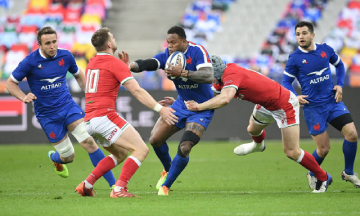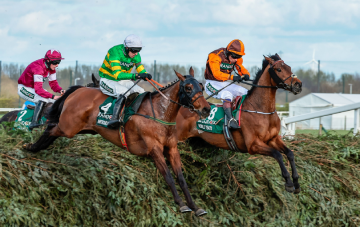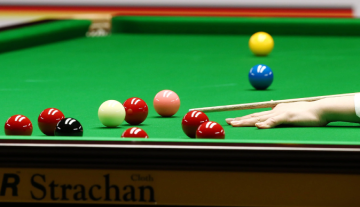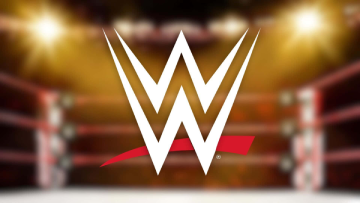Enjoy the exhilarating world of Rugby World Cup betting with a modern twist – using Bitcoin! This GOSUBETTING guide is designed to introduce you to the world of Bitcoin for your Rugby World Cup betting experience. We’ll walk you through everything from understanding the Rugby World Cup, exploring past wins and statistics, setting up a Bitcoin wallet, and selecting the best Rugby Bitcoin betting platforms, to placing and withdrawing your bets using Bitcoin.
Best Rugby World Cup Bitcoin Bookmakers & Sportsbooks
Rugby World Cup Overview
The Rugby World Cup is held once every four years during which time 20 countries vie for the coveted Webb Ellis Cup. In the 1950s, the idea of an annual global rugby competition was floated with the first one coming to pass in 1987. Since then, the tournament has evolved through nine editions.
Back in 1987, rugby was still an amateur sport. However, the landscape shifted dramatically after the 1995 World Cup, marking the sport’s change to professionalism. This change has significantly expanded rugby’s reach, transforming its humble beginnings into a globally celebrated event, most recently witnessed in Japan.
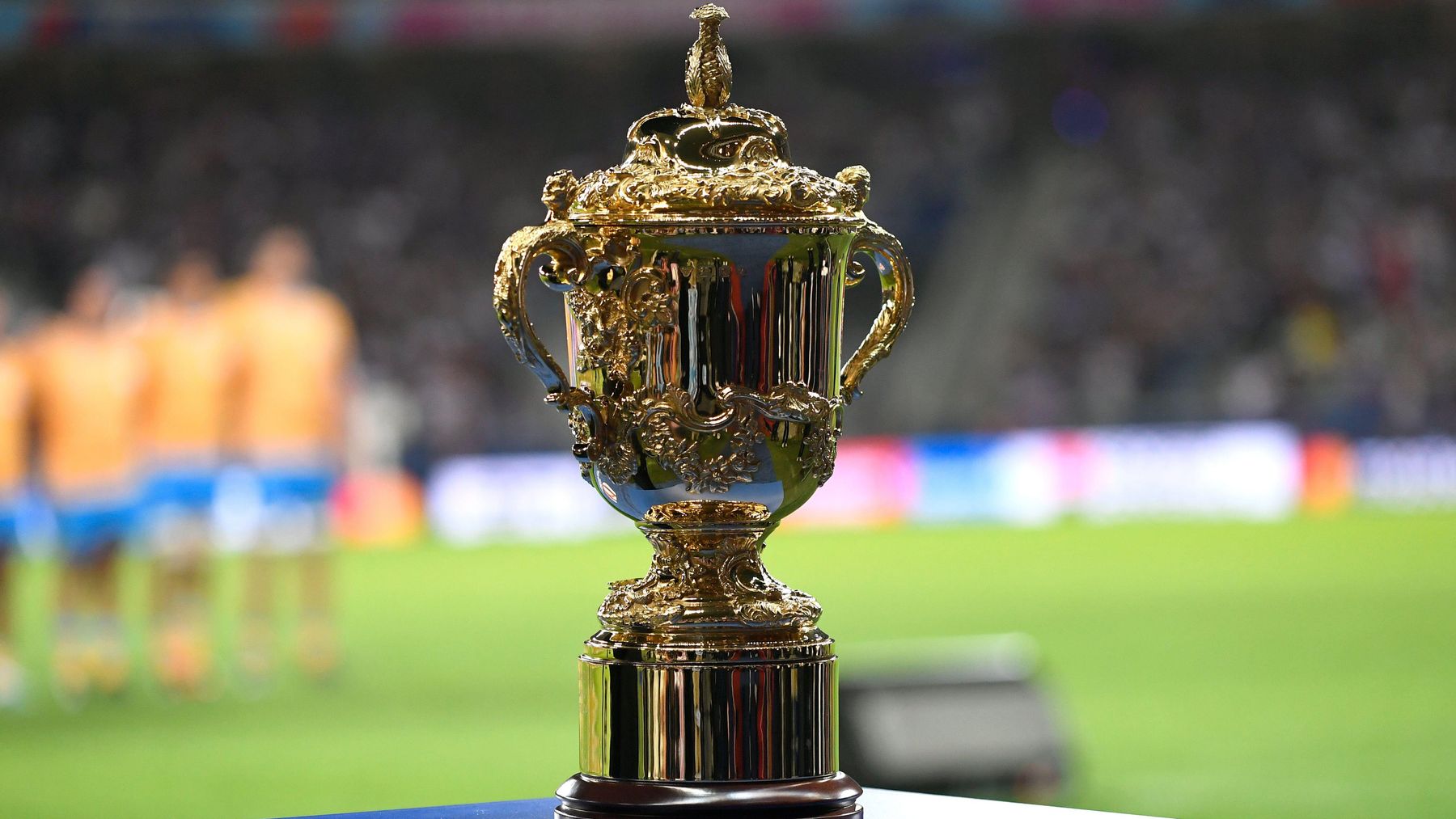
Rugby World Cup History
The first Rugby World Cup kicked off in 1987, co-hosted by Australia and New Zealand. Unlike the current format with 20 teams, the original tournament featured only 16, selected without a qualifying round. The seven members of the International Rugby Football Board (now World Rugby) were automatically in, while the others received direct invitations.
New Zealand, the favorites, emerged as the champions, showcasing dominance that culminated in a decisive 29-9 victory over France in the final. The 1987 tournament, characterized by its lopsided matches, was nonetheless celebrated for its success and set the stage for future events. The World Cup has since expanded in scale and popularity. The introduction of a qualifying stage came in 1991, and by 1999, the tournament had grown to include 20 teams.
The 1995 World Cup marked a pivotal moment in rugby history. South Africa, previously barred due to apartheid policies, was readmitted. Rugby played a unifying role in the nation’s healing process under President Nelson Mandela. South Africa’s triumph in the tournament, with Mandela presenting the trophy to captain Francois Pienaar in a South African jersey, remains a defining moment in sports.
This event not only increased rugby’s global appeal but also marked the first time the World Cup was hosted by a single country. Before this, hosting duties were typically shared or spread across multiple nations. However, since 2003, with Australia as the host, the trend has shifted towards single-nation hosting.
In a significant move to diversify rugby’s global footprint, the 2019 tournament saw Japan become the first Asian and first non-tier one nation to host the World Cup, a clear sign of World Rugby’s commitment to expanding the sport’s reach.
More Note-Worthy Moments
Most of the history of the Rugby World Cup was as a result of great performances of southern hemisphere nations comprising of New Zealand, South Africa, and Australia who have won 8 titles out of 9 championships. The Springboks can pride themselves on having won three titles in New Zealand and South Africa (SA was absent from the first two competitions because of the ban).
Breaking the southern hemisphere’s dominance, England clinched the title in a thrilling final against host Australia in 2003, winning 20-17 in extra-time. Jonny Wilkinson became a national hero, sealing the victory with a memorable drop-goal in the final moments.
England went as far as reaching the final in 2007 and 2019 but have not repeated their 2003 glory so far. Australia is the second best-performing team in the southern hemisphere after New Zealand and South Africa because they lifted 2 world cups in 1991 and 1999.
Rugby World Cup Structure
The Men’s Rugby World Cup has contained twenty teams in the lineup format since 2003. Each of the pools A, B, C, and D has five teams coming from various countries. This is due to all the forty pool matches, and after this, the second-ranked from the pool plays the main one. After that, both sides play their respective semi-final and final games to earn the honor of lifting the Webb Ellis Cup. The losing teams do not proceed to the finals but take part in the bronze final.
The expansion of the Rugby World Cup in 2027
The 2027 men’s Rugby World Cup that will happen in Australia is about to undergo a major upgrade turning it into a 24-team tournament—the biggest change supported by the World Rugby Council since 1987.
The 11th edition of this premier event will span six weeks from October 1 to November 13, 2027, featuring the world’s best teams battling it out for the prestigious Webb Ellis Cup.
The new format introduces six pools of four teams each, adding a round of 16 before the quarter-finals. This adjustment not only shortens the tournament window from seven to six weeks but also makes it a more dynamic and entertaining pool phase, keeping the minimum rest days between matches as seen in the 2023 France tournament.
This reimagined Rugby World Cup is a key component of the broader reform of the international rugby calendar starting in 2026. This significant development has been made feasible through the reform of World Rugby Regulation 9, which governs the international windows for player release.
Rugby World Cup Bonus Points Explained
Bonus Points also add up to a few points during the group stages as well—four points for winning, two for drawing, and zero for losing.
There are two types of bonus points:
- A player can earn up to five points if his team scores more than three tries in a single match with either win or not.
- Also, most of these teams are given an extra point when they lose, provided that their final score is more than seven points.
This means that if Team A loses to Team B 17 – 10, then the team that lost gets one bonus point because it was a close loss. A team may achieve two kinds of supplementary points at once as one could earn up to two points in case of the losses, provided there are at least four tries with a seven-point defeat.
History of the Bonus Point System
The bonus point system started in New Zealand’s National Provincial Championship in 1995. It wasn’t until the 2003 World Cup in Australia that this system was adopted on a larger scale. The addition of bonus points in the 2003 tournament resulted in its adoption across all rugby union competitions.
Rugby World Cup Pool Stage Tiebreakers
In the Rugby World Cup, the process for determining pool standings and qualification for the knockout stages involves some specific tiebreaker criteria. When teams finish the group stage with equal points, the following rules apply to decide their ranking:
- The team that won the head-to-head match between the tied teams is ranked higher.
- The team with the superior points difference from all pool stage matches is ranked higher.
- The team with the best difference between tries scored and tries conceded during the pool stages is ranked higher.
- The team that scored the most points in all pool stage matches is ranked higher.
- The team that scored the most tries in the pool stages is ranked higher.
If the teams are still level after these steps, the official World Rugby Rankings at a specific date will be used to determine the higher-ranked team.
Knockout Phase Procedures
In the knockout stages, the competition makes use of bonus points. If teams are tied at the end of regular time from the quarter-finals onward, the following methods are used to choose a winner:
- Extra-time: Two halves of ten minutes each, with a five-minute interval.
- Sudden Death: If the scores are still tied after extra time, a sudden death period of up to ten minutes is played, where the first team to score any points wins.
- Kicking Competition: If there’s still no winner after sudden death, a kicking competition is held. This involves five players from each team, who were on the field at the end of sudden death, kicking from three positions on the 22-meter line. They alternate kicks, and the team with the most successful kicks after five rounds wins.
If there’s a tie after these five rounds, the competition shifts to a sudden-death format, continuing until one team has more successful kicks than the other after an equal number of attempts.
Featured Bitcoin Rugby World Cup Betting Site
BC.Game Welcome Bonus
180% up to $20,000 First Deposit Bonus
Rugby Positions and Their Unique Roles
Rugby is renowned for being inclusive and accommodating various body types and skill sets. Each position in rugby union demands distinct physical and technical qualities, adding to the game’s diversity and accessibility.
15s vs. Sevens Teams
- In 15s rugby, the team is divided into eight forwards and seven backs.
- In sevens rugby, the composition is three forwards and four backs.
Positions by Number with Common and Regional Names
- Loose-head Prop: The player who binds to the left side of the scrum.
- Hooker: Positioned in the middle of the front row in scrums, responsible for hooking the ball.
- Tight-head Prop: The player on the right side of the scrum, binding against the opposing loose-head prop.
- Second-row (Lock): A forward position; players bind in the second row of the scrum.
- Second-row (Lock): Similar to position 4, providing power in the scrum.
- Blindside Flanker: Often larger than the openside, playing on the blind side of the scrum.
- Openside Flanker: Usually more agile, playing on the open side of the scrum.
- Number 8 (or Eight Man/Lock): Positioned at the back of the scrum, linking forwards and backs.
- Scrum-half (Half Back): Distributes the ball from the base of scrums, rucks, and mauls.
- Fly-half (First five-eighth): Key playmaker, directing the team’s attack.
- Left Wing: Speedy player, often responsible for finishing scoring moves.
- Inside Centre: Combines physicality with ball-handling skills and tactical awareness.
- Outside Centre: Usually faster and more elusive than the inside center.
- Right Wing: Similar to the left wing, often involved in scoring tries.
- Full-back: Last line of defense, skilled in catching high balls and counter-attacking.
Each position’s role underscores rugby’s philosophy of being a game for everyone, regardless of physical build or skill level. This diversity within team roles is a fundamental aspect that makes rugby a uniquely inclusive and varied sport.
Rugby World Cup 2027 Summary
The 2027 Rugby World Cup, scheduled for October 1 to November 13, is set to introduce a few significant changes:
- The tournament will expand from 20 to 24 teams.
- A new, streamlined six-week schedule (spanning seven weekends) has been approved, optimizing player welfare, entertainment value, and operational efficiency. This adjustment reduces the pool phase from five to four weeks.
- A Round of 16 is being introduced, with the top two teams from each pool automatically qualifying, alongside the best four third-placed teams.
- This format alteration provides clarity and stability for all involved, ensuring the Rugby World Cup remains a highlight of the international rugby calendar.
- The qualification process for the 2027 World Cup will be finalized after a comprehensive review of the 2023 France World Cup and discussions with unions and regions.
2027 Rugby Union World Cup Location and Timing
The 2027 Rugby Union World Cup is set to begin on October 1, 2027, in Australia. This marks the 11th iteration of the tournament and Australia’s second time hosting it. Australia first hosted the tournament in 1987, sharing the honors with New Zealand for what was the first Rugby World Cup.
2027 Rugby Union World Cup: Format and Qualification
Automatic qualification for this tournament has been granted to the following 12 teams based on their performance in the 2023 World Cup. Where they finished either 1st, 2nd, or 3rd in their respective pools during the First Round Stage:
- South Africa
- Japan
- England
- France
- Ireland
- Italy
- Scotland
- Wales
- Australia
- Fiji
- New Zealand
- Argentina
2023 Rugby World Cup Match Fixtures & Results
Pool A
The pivotal opening match between France and New Zealand set the tone for Pool A, with France emerging victorious. The pool saw dominant performances from these two teams, overshadowing Italy, Namibia, and Uruguay.
- France vs New Zealand: France won 27-13.
- Italy vs Namibia: Italy won 52-8.
- France vs Uruguay: France won 27-12.
- New Zealand vs Namibia: New Zealand won 71-3.
- Italy vs Uruguay: Italy won 38-17.
- France vs Namibia: France won 96-0.
- Uruguay vs Namibia: Uruguay won 36-26.
- Italy vs New Zealand: New Zealand won 96-17.
- New Zealand vs Uruguay: New Zealand won 73-0.
- France vs Italy: France won 60-7.
Pool B
This was primarily a contest between Ireland and South Africa, with Scotland also considered a strong contender.
- Ireland vs Romania: Ireland won 82-8.
- South Africa vs Scotland: South Africa won 18-3.
- Ireland vs Tonga: Ireland won 59-16.
- South Africa vs Romania: South Africa won 76-0.
- South Africa vs Ireland: Ireland won 13-8.
- Scotland vs Tonga: Scotland won 45-17.
- Scotland vs Romania: Scotland won 84-0.
- South Africa vs Tonga: South Africa won 49-18.
- Ireland vs Scotland: Ireland won 36-14.
- Tonga vs Romania: Tonga won 45-24.
Pool C
Australia was the favorite, with Wales also expected to progress to the quarter-finals.
- Australia vs Georgia: Australia won 35-15.
- Wales vs Fiji: Wales won 32-26.
- Wales vs Portugal: Wales won 28-8.
- Australia vs Fiji: Fiji won 22-15.
- Georgia vs Portugal: Draw 18-18.
- Wales vs Australia: Wales won 40-6.
- Fiji vs Georgia: Fiji won 17-12.
- Australia vs Portugal: Australia won 34-14.
- Wales vs Georgia: Wales won 43-19.
- Fiji vs Portugal: Portugal won 24-23.
Pool D
Pool D was seen as a race between England and Argentina.
- England vs Argentina: England won 27-10.
- Japan vs Chile: Japan won 42-12.
- Samoa vs Chile: Samoa won 43-10.
- England vs Japan: England won 34-12.
- Argentina vs Samoa: Argentina won 19-10.
- England vs Chile: England won 71-0.
- Japan vs Samoa: Japan won 28-22.
- Argentina vs Chile: Argentina won 59-5.
- England vs Samoa: England won 18-17.
- Japan vs Argentina: Argentina won 39-27.
Quarter Finals
- Wales vs Argentina: Argentina won 29-17.
- Ireland vs New Zealand: New Zealand won 28-24.
- England vs Fiji: England won 30-24.
- France vs South Africa: South Africa won 29-28.
Semi-Finals
- Argentina vs New Zealand: New Zealand won 44-6.
- England vs South Africa: South Africa won 16-15.
Bronze Final
- Argentina vs England: England won 26-23.
Final
- New Zealand vs South Africa: South Africa won 12-11.
Rugby World Cup Winners Over The Years
In the last tournament, South Africa boasted four Rugby titles. Finally, New Zealand has bagged three trophies, Australia took home the cup thrice, and England scooped one trophy.
Previous Rugby Union World Cup Winners and Finalists
- 2023: In France at Stade de France South Africa had the upper hand over the New Zealanders by scoring 12-11.
- 2019: South Africa beat England 32 – 12 at Nissan Stadium in Japan.
- 2015: Australia lost to New Zealand by 34 – 17 at Twickenham, England.
- 2011: At Eden Park in NZ, New Zealand beat France by 8-7.
- 2007: In Stade De France, France, South Africa thrashed England by 15 points to 6 in the game.
- 2003: At Telstra Stadium, Australia, England beat Australia 20-17.
- 1999: Australia won the match against France with 35-12 scores at Millennium Stadium, Wales.
- 1995: The team of South Africa beat New Zealand by 15-12 at Ellis park, South Africa.
- 1991: Australia won by 12-6 against England in Twickenham, England.
- 1987: New Zealand beat France 29-9 in Eden Park, New Zealand.
This list shows the history of the Rugby Union World Cup and the major developments that have defined that journey as well as a few of the exciting finals that characterize the tournament.
2027 Rugby World Cup Favorites
New Zealand
Heading into the 2027 Rugby World Cup, New Zealand is pegged as the top favorite, with betting odds of 5/2. This implies a 28.6% chance of the All Blacks securing the title in 2027.
Recent World Cup Performance
In the last match against South Africa, the All Blacks suffered a close loss of eleven points with SA getting twelve points during the 2023 World Cup Final. However, their fourth Rugby World Cup win was stopped by this and oddsmakers still regard them as the main contenders to win it all in 2027.
Historical Success
The performance of the All Blacks in the World Cup leaves great room for achievement. They have won the cup 3 times and are in good traction for a 4th. In particular, they were one of the first countries to ever win three World Cups and keep the World Cup in 2015.
Dominance in Rugby
Notably, New Zealand has succeeded significantly in testing rugby union with an average of 76% since its international playing inception in 1903. It is worth noting that they have been against 19 countries, where only two of them were successful in winning over the All Blacks.
Shift in Dominance
While New Zealand’s dominance in rugby has slightly waned, as evidenced by South Africa’s consecutive World Cup victories and recent losses to Ireland, their rugby prowess remains formidable. They demonstrated their strength by reaching the 2023 final, confirming their status as a top contender in the sport.
Outlook for 2027
Despite some criticism, New Zealand’s rugby legacy and recent performances make them a strong favorite for the 2027 Rugby World Cup. Their history of success and resilience in the face of tough competition, position them as a team to watch in the upcoming tournament.
South Africa
South Africa is ranked as the second favorite to win the 2027 Rugby World Cup, with odds set at 3/1. This suggests a 25% chance of them clinching the title in 2027.
Pursuit of a Historic Achievement
Springboks are out to defend their crown of back-to-back wins this year entering the 2027 tournament. Doing so will have them as the first team to achieve the record of wins thrice in a row.
Recent World Cup Success
South Africa’s track record in recent World Cups is notable. They were victorious in 2019, defeating England with a score of 32-12, and in 2023, they narrowly won against New Zealand with a score of 11-12.
Impressive Tournament Record
The Springboks’ victory in the 2023 World Cup was their fourth championship and the most any team on record (fifty percent achievement based on eight World Cup appearances). Other than their wins, South Africa came third on two occasions (1999 and 2015) as well as being knocked out in the quarter-finals on two other times (2003 and 2011).
Squad Dynamics and Challenges
A key factor for South Africa heading into the 2027 World Cup is the age of their squad. They had the oldest team in the 2023 World Cup, with an average age of 30.4, indicating the need for rejuvenation and talent infusion in the coming years.
Outlook for 2027
Despite the challenge of an aging squad, South Africa’s proven track record and consistent performance in past tournaments position them as formidable contenders for the 2027 Rugby World Cup. Their history of success and the potential for squad revitalization make them a team to watch closely in the next edition of the event.
France
France is positioned as one of the co-third favorites for the 2027 Rugby World Cup, with odds of 5/1. This indicates a 16.7% probability of France clinching the Webb Ellis Cup in 2027.
Consistent Presence in World Cups
France, alongside New Zealand, is one of only two nations to have participated in every Rugby World Cup edition, showcasing their enduring presence in the sport.
Performance in 2023
The 2023 tournament saw high expectations for France, not only as the host nation but also due to their exceptionally talented squad. They lived up to these expectations in the pool stage, winning all four matches, including a significant opening game against the eventual finalists, New Zealand.
Challenging Draw and Historic Match
In the knockout stage of the 2023 World Cup though, they met with the Springboks who are the defending champions, and had to overcome them. This was in a closely fought game that many rugby specialists refer to today as one of the most outstanding ever World Cup matches France lost by just one point 28-29 leaving them a string of close defeats at the World Cup.
Historical Achievements
France’s best results at the Rugby World Cup were as runner-up in 1987, 1999, and 2011; third place in 1995; and fourth in both 2003 and 2007. In 1991, 2015, 2019, and 2023 they got kicked out in the quarter-finals.
Youthful Squad and Future Potential
Notably, the French team was the youngest among the top-eight ranked sides in 2023, with an average age of 27.4, signaling a promising future. This youthful team shows potential for further development and stronger performances in the upcoming 2027 Rugby World Cup.
Leadership and Team Strength
Under Head Coach Fabien Galthié, the team has achieved remarkable success, becoming one of the most prolific French teams in history.
Outlook for 2027
Given their historical performance, current team strength, and growth potential, France is undoubtedly a team to watch in the 2027 Rugby World Cup. Their blend of youth, experience, and tactical prowess under Galthié’s leadership makes them strong contenders for the title.
Ireland
Ireland is tied as co-third favorites for the 2027 Rugby World Cup, with odds at 5/1. This translates to a 16.7% chance of Ireland securing their first-ever Rugby World Cup title in 2027.
2023 World Cup Performance
Entering the 2023 Rugby World Cup as the world’s number-one ranked team, Ireland had high expectations. However, they faced disappointment with another quarter-final exit, losing to New Zealand with a close score of 24-28.
Historical Context in World Cups
Ireland’s track record in Rugby World Cup history is notable for their consistent presence but lack of advancement past the quarter-final stage. Despite nine appearances, they have never progressed beyond this point, making them the only traditional tier-one nation yet to reach a semi-final.
The Challenge Ahead
The next four years will be crucial for Ireland as they strive to break this quarter-final barrier. The team will need to focus on building resilience and determination to surpass their historical limitations.
Squad Age Concerns
One of the challenges for Ireland is the relatively high average age of their squad, which was 29.4 in the 2023 tournament. This age profile was only slightly lower than South Africa and Samoa, suggesting a need for rejuvenation and integration of younger talent.
Key Player Replacement
A significant task for Ireland will be replacing key players, such as the legendary fly-half Johnny Sexton. The introduction of fresh talent will be essential for Ireland to improve their chances of advancing beyond the quarter-finals and potentially contending for the title.
Outlook for 2027
Looking forward to the 2027 Rugby World Cup, Ireland faces the dual challenge of refreshing their squad and overcoming historical patterns. They have to understand how to blend with fresh talents as well as retain their competitiveness to reach their goals of going far into the tournament and finally attaining their first World Cup triumph.
Australia
The hosts for the upcoming 2027 Rugby World Cup are presently ranked, with a probability of 7:1, of winning the tournament. This suggests they have a 12.5% chance of emerging as champions on home soil.
Current State of Australian Rugby
Australian rugby has been experiencing a challenging period. Their performance in the 2023 Rugby World Cup was below expectations, as they failed to progress beyond the pool stage, suffering defeats against Fiji (15-22) and Wales (40-6).
Historical Performance in World Cups
The history of Australia in the Rugby World Cup is unique. They are among a few teams who have won the tournament multiple times, making it happen once in 1991 and another time in 1999. They made it to the final tournament where they became runners-up in 2003 and 2015, placed third in 2011, came fourth in 1987, and exited in the quarter-finals in 1995, 2007, and 2019.
Coaching Changes and Squad Dynamics
Following Eddie Jones’ resignation as head coach amidst speculation and questions about his future commitments, Australia’s coaching direction for the 2027 World Cup is uncertain. Notably, Australia fielded the youngest squad in the 2023 tournament, with an average age of 26.5, indicating a team with potential for growth and development.
Outlook for 2027
As the host nation for the 2027 tournament, combined with the promising talent of players like Joseph Sua’ali’i, Australia is expected to present a stronger challenge. The odds of 7/1 may thus be an attractive prospect, reflecting the potential for Australia to leverage their home advantage and youthful squad to achieve a better outcome in 2027.
2027 Rugby World Cup Betting Overview
New Zealand as Top Favorites
New Zealand, with odds at 5/2, are the favorites for the 2027 Rugby World Cup. After their narrow loss to South Africa in the 2023 final, where they were defeated 12-11, they are keen to reclaim the trophy.
South Africa’s Continued Dominance
The other favorable selection is South Africa which lists at 3/1 for the 2027 tournament. With consecutive World Cup triumphs and the latest outstanding performances, they have established themselves as formidable giants of the global rugby team.
France’s Redemption Ambitions
France, with odds of 5/1, aims to bounce back after their quarter-final exit against South Africa in 2023. Despite using their home advantage effectively and showing strong performance throughout the tournament, they fell short in a close and intense match against the Springboks.
Ireland’s Prospects
Ireland, also at 5/1 odds, will be looking to improve on their 2023 campaign, where they were eliminated by New Zealand.
Australia as Hosts
Australia, the hosts for the 2027 World Cup, are currently at 8/1 odds. Their performance in the 2023 World Cup was seen as disappointing, particularly failing to advance beyond the pool stage.
England’s Surprising 2023 Run
England, who lost only by a difference of one point from South Africa, surprised many but also achieved excellent results by coming into the semifinals. Their odds for the 2027 World Cup are set to be at 8/1 and prove them worthy of making an impression in the competition.
Bitcoin Betting Strategies on the Rugby World Cup
1. Match Odds
This is the simplest kind of Bitcoin betting which involves trying to forecast the result of a specific game. A Bitcoin bettor can choose to gamble the home team to win, the away team to win, or a draw. Such a market resembles the 3WAY soccer betting market.
2. Draw No Bet
This variation of the match odds market refunds your Bitcoin bet if the match ends in a draw. It’s suitable for crypto bettors who are uncertain about the winner but believe a draw is unlikely.
3. Double Chance
This is an interesting betting market covering two out of three probable match results. You may wager that the home team will win or draw, or that the away team will win or draw. This is a strategic choice for bettors who want to decrease their risk.
4. Correct Score
More challenging but with higher potential rewards, this market requires predicting the exact score of a match. Due to its difficulty, it offers generous payouts for correct predictions.
5. Over/Under (Totals)
This popular market is based on the total number of points scored in a match. You bet on whether the total score will be over or under a specified number. This market is similar to the total bet in American sports.
6. Handicap
In this market, one team is given a points advantage (or handicap) before the match begins, aimed at leveling the betting field. It’s similar to point-spread betting in NFL and NCAAF markets.
7. To Progress
Common in tournament settings, this market lets you bet on which teams will advance to the next stages or win the tournament outright.
Bonus Bitcoin Betting Opportunities
For improved value when betting with Bitcoin on the Rugby World Cup, consider promotional offers, which can provide bonus Bitcoin bets for new users. When betting on the Rugby World Cup, it’s important to understand these different markets and use strategies that work with your confidence level and risk tolerance. Each market offers unique opportunities and challenges, catering to a range of Bitcoin betting preferences and styles.
Advantages of Bitcoin Betting
- Security: Superior safety features of Bitcoin transactions.
- Anonymity: The privacy advantage for bettors.
- Speed: Faster processing of deposits and withdrawals.
- Global Reach: Overcoming geographic and currency restrictions.
How to Bet on the Rugby World Cup Using Bitcoin
Betting on the Rugby World Cup with Bitcoin adds an exciting and modern twist to traditional sports betting. Here’s a comprehensive guide on how to use Bitcoin for betting on one of the world’s most thrilling sporting events.
Setting Up a Bitcoin Wallet
Types of Bitcoin Wallets:
- Hardware Wallets: Physical devices that store your Bitcoin offline, offering high security.
- Software Wallets: Applications downloaded on your computer or mobile device, balancing convenience and security.
- Mobile Wallets: Apps on your smartphone, ideal for easy access and use.
- Web Wallets: Online services provided by exchanges or other providers, offering quick access but with different security levels.
Steps to Set Up and Secure a Bitcoin Wallet
- Choose Your Wallet: Select a wallet type based on your security needs and convenience.
- Install or Purchase: Download the software or purchase a hardware wallet.
- Set Up Security Features: Create a strong password and, if available, set up two-factor authentication.
- Backup Your Wallet: Write down the recovery phrase or seed and store it in a secure place.
- Receive Bitcoin: Generate a receive address or QR code to transfer Bitcoin into your wallet.
Funding Your Betting Account with Bitcoin
- Access Your Wallet: Log in to your Bitcoin wallet.
- Initiate a Transfer: Select the option to send Bitcoin.
- Enter Betting Site Address: You’ll need to copy the deposit address from a Bitcoin betting site and paste it into your wallet.
- Confirm the Transaction: Confirm your Bitcoin deposit – enter the amount of Bitcoin you would like to transfer.
Step-by-Step Guide on Placing Rugby World Cup Bets
- Select the Match: Choose the Rugby World Cup match you want to bet on.
- Choose Your Bet Type: Select from various bet types like match winner, over/under, or specific prop bets.
- Place Your Bet: Enter the amount of Bitcoin you want to bet and confirm your bet.
Withdrawing Winnings in Bitcoin
- Request a Withdrawal: Go to the withdrawal section on the crypto betting site.
- Enter Your Wallet Address: Provide your Bitcoin wallet address for the withdrawal.
- Confirm the Amount: Enter the amount of Bitcoin to withdraw and confirm.
Choosing a Bitcoin Betting Site
- Licensing: Ensure the platform is licensed and regulated by a reputable authority.
- Security: Look for Bitcoin platforms with strong security measures like SSL encryption.
- User Reviews: Check user reviews and ratings for credibility and user experience.
- Rugby World Cup Betting Options: Make sure the platform offers a variety of Rugby World Cup markets.
Rugby Terminology Glossary
- 22: The area between the goal line and the 22-meter line, including the 22-meter line but excluding the goal line and touchlines.
- Advantage: A tactical or territorial benefit gained after an infringement by the opposition.
- Binding: Grasping another player’s body firmly between the shoulders and hips with the entire arm.
- Blood injury: Uncontrolled active bleeding.
- Captain: The player leading the team and consulting with the referee.
- Cavalry charge: An illegal attack, often near the goal line, initiated after a penalty or free-kick.
- Dead: The state of the ball when play is stopped by the referee or after an unsuccessful conversion.
- Dead-ball line: The line at the ends of the playing area.
- Defending team: The team playing in their half.
- Directly caught: Catching the ball without it touching anyone else or the ground first.
- Drop-kick: Kicking the ball as it rises from its first bounce after being intentionally dropped.
- Field of play: The area between the goal lines and touch lines, excluding these lines.
- Flying wedge: An illegal attack, typically near the goal line, starting with a penalty or free-kick.
- Forward: In the direction of the opponent’s dead-ball line.
- Foul play: Actions contrary to the laws of obstruction, unfair play, repeated infringements, dangerous play, and misconduct.
- Free-kick: Awarded for minor infringements or to a team for a mark.
- Hand-off: Using the palm to fend off an opponent with a ball carrier.
- Hindmost: Nearest to a team’s goal line.
- Kicking tee: A device to support the ball for a place-kick.
- Knock-on: Losing possession of the ball and it goes forward, or hitting it forward, and it touches the ground or another player before being caught.
More Terminology
- Line of touch: The imaginary line where the ball is thrown in from touch.
- Line through the mark or place: A line parallel to the touchline, unless otherwise stated.
- Mark: Suspending play and winning a free-kick by catching an opponent’s kick and shouting “mark.”
- Obstruction: Illegally impeding a player from attempting to play.
- Offside: A positional offense where a player is out of play and liable to sanction.
- Penalty: Awarded for a serious infringement, penalizing the offending team.
- Penalty try: Awarded when a try would likely have been scored if not for foul play by the opponent.
- Place-kick: Kicking the ball after it has been placed on the ground or a kicking tee.
- Possession: Control or attempt to control the ball.
- Punt: Kicking the ball before it touches the ground after being dropped.
- Quick-throw: A throw from touch taken before the formation of a lineout.
- Receiver: Positioned to receive the ball from a lineout.
- Red card: Indicates permanent exclusion of a player from the match.
- Ruck: A phase with players on their feet around the ball on the ground.
- Rucking: Using feet legally to gain possession in a ruck.
- Scrum: A set piece with eight players from each team bound together.
- Sent off: Permanent exclusion indicated by a red card.
- Sin-bin: Area for temporarily suspended players.
- Tackle: Holding and grounding a ball carrier.
- Yellow card: Indicates caution and temporary suspension of a player.
Conclusion
As the world of sports betting becomes more modern, Bitcoin and cryptocurrencies are becoming powerful tools, reshaping how we bet on events like the Rugby World Cup. By offering more privacy, speed, and better security, Bitcoin betting stands at the forefront of this transformation.
Whether you’re just starting or have some experience, betting with Bitcoin introduces an exciting, modern twist to enjoying one of the world’s most exciting sports events. As we look to the future, the continuous innovation in blockchain and crypto betting platforms promises to further improve your betting experience, making it more accessible, secure, and entertaining for rugby fans worldwide.
FAQs on Bitcoin Betting for the Rugby World Cup
-
Can I bet on the Rugby World Cup using Bitcoin?
-
Is betting with Bitcoin safe?
-
How do I set up a Bitcoin wallet for betting?
-
Are there bonuses for betting with Bitcoin?
-
How do I deposit Bitcoin into my betting account?
-
Can I withdraw my winnings in Bitcoin?
-
How are odds presented in Bitcoin betting?
-
What types of bets can I place on the Rugby World Cup using Bitcoin?
-
What should I consider when choosing a Bitcoin betting site?
-
Will Bitcoin betting be available for all Rugby World Cup matches?






















































